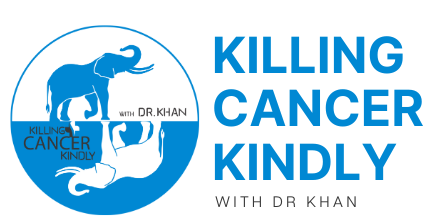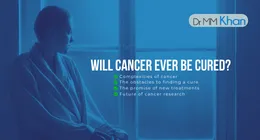Cancer, a formidable disease that has touched the lives of millions worldwide, continues to be a significant challenge for medical researchers and healthcare professionals alike. Despite significant progress in cancer treatment and understanding, the quest for a definitive cure remains ongoing for most cancers. In this article, we will explore the complexities of cancer, the obstacles to finding a cure, the promise of new treatments, and the future of cancer research in the relentless pursuit of a cure.
What is Cancer?
Cancer is a group of diseases characterized by the abnormal and uncontrolled growth of cells. It can develop in various organs and tissues of the body. Cancerous cells can invade nearby tissues and spread to distant parts of the body, a process known as metastasis.
Can Cancer Be Cured?
The question of whether cancer can be cured is complex and dependent on various factors, including the type of cancer, its stage at diagnosis, and the individual’s overall health. Some cancers have higher cure rates when detected early and treated aggressively, while others, especially in advanced stages, may not have a definitive cure. There are some cancers that are curable even in an advanced stage (such as Testicular tumors and Hodgkin’s Lymphoma). The focus of most cancer treatments at present is often on achieving remission or long-term control of the disease.
The Obstacles to Curing Cancer
Finding a cure for cancer is impeded by several challenges:
- Heterogeneity of Cancer Cells
Cancer is not a single disease but a collection of diseases with diverse biological characteristics. Each type of cancer may consist of various subtypes, making it challenging to develop a universal cure.
- Metastasis
Metastasis is one of the most significant challenges in cancer treatment. When cancer cells spread to distant organs, they become harder to eradicate, leading to more aggressive disease and decreased treatment success.
- Resistance to Treatment
Cancer cells can develop resistance to standard treatments, such as chemotherapy and radiation therapy. This resistance allows cancer to persist and evade the effects of therapy.
- Lack of Predictive Biomarkers
Identifying predictive biomarkers that can accurately determine a patient’s response to a particular treatment is essential. This would enable personalized treatment plans tailored to individual patients.
The Promise of New Treatments
Despite the challenges, advancements in cancer research have led to the emergence of new treatment approaches with promising results:
- Immunotherapy
Immunotherapy harnesses the body’s immune system to recognize and attack cancer cells. It has shown remarkable success in treating various types of cancer and has revolutionized cancer treatment.
- Targeted Therapy
Targeted therapies focus on specific molecules or genetic changes present in cancer cells, allowing for more precise and effective treatment.
- Precision Medicine
Precision medicine involves tailoring treatment based on a patient’s genetic makeup and specific cancer characteristics, enhancing treatment outcomes.
The Future of Cancer Research
The future of cancer research is filled with hope and potential:
- Early Detection and Prevention
Advancements in early detection methods can significantly impact cancer outcomes by enabling early intervention and treatment increasing the chances of cure.
- Artificial Intelligence
Artificial intelligence and machine learning hold promise in analyzing vast amounts of cancer data to identify patterns, develop predictive models, and inform treatment decisions.
- Gene Editing
Gene editing technologies like CRISPR offer the potential to modify cancer-causing genes, providing new avenues for treatment and prevention.
- Personalized Vaccines
Personalized cancer vaccines are being explored to train the immune system to recognize and attack cancer cells based on the patient’s unique tumor profile.
Conclusion
The quest for a cancer cure is a complex and challenging journey, but one that continues to drive the dedication and ingenuity of researchers and healthcare professionals worldwide. While a universal cure for all types of cancer remains elusive, significant progress has been made in improving treatment outcomes and patient quality of life. The future of cancer research holds great promise, and with continued efforts and advancements in medical science, the hope of a world without cancer draws nearer.


